- Home
- Janet Dailey
Lord of the High Lonesome
Lord of the High Lonesome Read online
Lord of the High Lonesome
Janet Dailey
An [ e - reads ] Book
No part of this publication may be reproduced or transmitted in any form or by any means, electronic, or mechanical, including photocopy, recording, scanning or any information storage retrieval system, without explicit permission in writing from the Author.
This book is a work of fiction. Names, characters, places, and incidents are products of the author's imagination or are used fictitiously. Any resemblance to actual events or locals or persons, living or dead, is entirely coincidental.
Copyright 1980 by Janet Dailey
First e-reads publication 1999
www.e-reads.com
ISBN 0-7592-0136-6
Author Biography
Janet Dailey was born Janet Haradon in 1944 in Storm Lake, Iowa. She attended secretarial school in Omaha, Nebraska before meeting her husband, Bill. Bill and Janet worked together in construction and land development until they “retired” to travel throughout the United States, inspiring Janet to write the Americana series of romances.
In 1974, Janet Dailey was the first American author to write for Harlequin, her first novel was NO QUARTER ASKED. She has since gone on to write approximately 90 novels, 21 of which have appeared on The New York Times bestseller list. She has won many awards and accolades for her work, appearing widely on Radio and Television. Today, there are over three-hundred million Janet Dailey books in print in 19 different languages, making her one of the most popular novelists in the world.
Other works in Janet Dailey’s Americana Series also available in e-reads editions
Dangerous Masquerade
Northern Magic
Sonora Sundown
Valley of the Vapours
Fire and Ice
After the Storm
Difficult Decision
The Matchmakers
Southern Nights
Night of the Cotillion
Kona Winds
The Travelling Kind
A Lyon’s Share
The Indy Man
The Homeplace
The Mating Season
Bluegrass King
The Bride of the Delta Queen
Summer Mahogany
Bed of Grass
That Boston Man
Enemy In Camp
Giant of Mesabi
A Tradition of Pride
Show Me
Big Sky Country
Boss Man From Ogallala
Reilly’s Woman
Heart of Stone
One of the Boys
Land of Enchantment
Beware of the Stranger
That Carolina Summer
The Widow and The Wastrel
Six White Horses
To Tell The Truth
The Thawing of Mara
Strange Bedfellow
Low Country Liar
Dakota Dreamin’
Sentimental Journey
Savage Land
A Land Called Deseret
Green Mountain Man
Tidewater Lover
For Mike’s Sake
Wild and Wonderful
With A Little Luck
Darling Jenny
Introduction
Introducing Janet Dailey’s AMERICANA. Every novel in this collection is your passport to a romantic tour of the United States through time-honored favorites by America’s First Lady of romance fiction. Each of the fifty novels is set in a different state, researched by Janet and her husband, Bill. For the Daileys it was an odyssey of discovery. For you, it’s the journey of a lifetime.
Preface
When I first started writing back in the Seventies, my husband Bill and I were retired and traveling all over the States with our home — a 34’ travel trailer — in tow. That’s when Bill came up with the great idea of my writing a romance novel set in each one of our fifty states. It was an idea I ultimately accomplished before switching to mainstream fiction and hitting all the international bestseller lists.
As we were preparing to reissue these early titles, I initially planned to update them all — modernize them, so to speak, and bring them into the new high-tech age. Then I realized I couldn’t do that successfully any more than I could take a dress from the Seventies and redesign it into one that would look as if it were made yesterday. That’s when I saw that the true charm of these novels is their look back on another time and another age. Over the years, they have become historical novels, however recent the history. When you read them yourself, I know you will feel the same.
So, enjoy, and happy reading to all!
Table of Contents
Chapter One
Chapter Two
Chapter Three
Chapter Four
Chapter Five
Chapter Six
Chapter Seven
Chapter Eight
Chapter Nine
Chapter Ten
Lord of the High Lonesome
Chapter One
WINTER-GRAY CLOUDS darkened the afternoon sky, the temperature chilling, a cold wind whistling. Kit Bonner waded through a fresh snowdrift the wind had piled on the path to the door. On the stoop, she paused to stomp the snow from her boots, her brown eyes scanning the bleak Dakota landscape beyond the living snow fence of trees.
The cold turned her breath into a puffy white vapor and reddened her cheeks and the tip of her nose. Her lips seemed frozen, incapable of movement without splitting. A creeping numbness was spreading through her limbs despite the long, thermal underwear beneath her denims and the fleece-lined parka.
Yet Kit didn’t hurry into the promised warmth of the house perched on the slope of a hill. Her attention was on the threatening darkness of the sky, her mind wondering how severe this winter storm would be and how well the cattle on the range would weather it.
A horse whinnied up by the barns, swinging her gaze in its direction. A shaggy-coated bay had its head over the corral fence, its ears pricked toward the outer barn door. Lew Simpson, one of the ranch hands, had just closed the door and was walking away, his Stetsoned head bent down, his body leaning into the wind. His destination was the old bunkhouse where friendly, welcoming smoke curled from its chimney.
Unconsciously Kit’s gaze continued its arc until it was stopped by the imposing structure of the main ranch house. For as long as Kit could remember it had been referred to as the Big House. Front atop the hill it commanded a sweeping view of the ranch buildings and the rugged North Dakota landscape. No smoke came front its chimneys nor any light from its windows. It stood empty, its doors and windows locked and shuttered.
The sight of it set her teeth on edge, thinning her lips and pressing them tightly closed. With an abrupt turn, Kit reached for the door and yanked it open to stride inside, slamming the door, peeling off her thickly lined leather gloves with jerky movements.
“Is that you, Kitty?” A voice called from the living room just beyond the small kitchen.
“Yes.” She unwrapped the woolen scarf that was wound around her neck and over the faded Stetson hat atop her head.
Heavy footsteps entered the kitchen. “Just heard on the radio that they’re issuing stockmen’s warnings.”
“Yes, I know.” Kit didn’t bother to glance at her grandfather as she draped the scarf over a coat hook and began unbuttoning her parka. “I talked to Sam McKenna today and made arrangements to airdrop some hay to the stock Lew and Frank can’t reach by snowmobile.” There was a husky quality to her voice, a sound that could have been pleasant if the words hadn’t been issued so gruffly. “I was hoping we’d get a chinook before the next blizzard came.”
“If wishes were horses —”
“Yes, I know
, Nate.” The parka joined the scarf on the hook as Kit impatiently cut in on her grandfather’s recitation of the old adage.
There was a second’s pause before he asked, “Did you get the mail?” with no reprimand for her curtness.
It was unnecessary since a twinge of conscience took any edge from her reply. “It’s in my coat pocket.”
With a hand braced against the wall for balance, Kit slipped a snow-covered heel into the bootjack. Her peripheral vision saw his arm reaching for her parka and the mail peeking out of its pocket.
“Anything special in it?”
“It looked like mostly junk mail and a couple of magazines,” she answered, taking the boots she had removed and setting them on the newspapers next to the wall.
“At least we’ll have something to read if we’re snowed in.” With the mail in hand, Nate Bonner turned to walk through the kitchen to the living room.
His philosophic attitude grated. Kit knew there was little that could be done except wait out the storm, but youth was seldom granted the wisdom of age to know the difference between the things that can be changed and those that can’t. It was all there in the irritated glance she tossed at his departing back, shoulders faintly stooped with age, legs permanently bowed, and a thatch of snow-white hair on his head.
The impulse to protest his calm acceptance of the situation was stifled as Kit noticed the lack of spring to his step. Nothing would be served by giving rein to her short temper. Besides, he wasn’t to blame for the leftover irritation coursing through her.
“Is there any coffee hot?” she questioned instead.
The faded brown Stetson was the last of her outer garments to be removed. It loosed a cascading tangle of chestnut gold hair that had been tucked inside its crown. It tumbled around her shoulders, a glistening contrast to the red and black plaid of the man’s flannel shirt Kit wore, one of many in her winter wardrobe, like the men’s cotton shirts that dominated her summer wear.
The rare times that her male attire was questioned, Kit claimed she wore it because men’s things were cheaper and longer lasting. But it was part of a hard, protective shell, like her brown eyes that never let anyone see in and the always proud and defensive tilt of her chin.
“Coffee’s on the stove.”
In stocking feet Kit dodged the puddles of melting snow, stepping out of the narrow lobby into the kitchen. She walked to the gas stove, which, like the rest of the small house and its furnishings, bordered on being antique. An almost equally old, metal percolater sat on a burner. Kit touched its side with her fingers to be sure its contents were still hot before opening the cupboard door beside the stove.
“Do you want a cup, Nate?” she called.
There was an instant of silence before he answered with a rather absent, “No, thanks.”
Bypassing the china cups and saucers on the shelf, Kit took out an old ironstone mug. A fine film of dust covered the china. It hadn’t been used, except to be moved and cleaned during Kit’s rare housecleaning spates, in the four years since her grandmother died.
Her grandfather had gone steadily downhill since then, losing his vigor, his drive. Nate Bonner had always seemed ageless to Kit, but she had watched him grow old. He had become merely the figurehead of the Flying Eagle Ranch that had once flourished under his management. Kit was the one who now gave the orders and made sure they were carried out.
No one had disputed her right to take over, not because she was a woman and not because she was young, having turned twenty-one this past fall. Everyone accepted it as being just and fair under the circumstances.
In the living room her grandfather sat in an old-fashioned wing-backed chair. His head was tipped back to peer through the lower half of the reading glasses perched on his nose. A reading lamp on the table beside him cast a circle of light onto the letter in his hand, the rest of the day’s mail lying on his lap.
A matching chair to the one he sat in flanked the other side of the table, its maroon cushions worn almost threadbare in spots. With her steaming coffee mug in hand Kit walked to it. Her grandmother had always sat there and Kit had taken to using it rather than have its emptiness be a painful reminder to her grandfather of the loss of his wife.
Resting her stocking feet on the footstool shared with the other chair, Kit leaned back to stare at the tongues of flame licking the logs in the fireplace. It and an oil burner provided heat for the small house in the winter. On winter days when the wind was blowing, and there were few days in North Dakota when it didn’t, it took both to warm the house. The combination was beginning to thaw Kit now.
She lifted the mug to her lips and sipped at the strong, black coffee, enjoying the reviving heat of the stimulating liquid as it slid down her throat. Her gaze focused on the worn cowboy boots her grandfather wore, the underslung heels resting on the footstool near her feet. There were black marks on the leather made by the constant wearing of spurs. It was more than two years since he’d been on a horse. Lately he rarely ventured out of the ranch yard except to go to town.
Sometimes when she looked into his eyes it seemed she was looking into those of a lost child. Poor Nate, Kit thought. He had always tried so hard all of his life, sacrificing his own wants and needs, and even his pride, to do what he felt was best for his family. There was compassion in the glance she lifted to his face, but he was intent on the letter in his hand.
“Who’s that from?” Kit asked, absently curious as she again raised the mug to her lips.
He cleared his throat before answering. “The new baron.” Her classical features hardened into a steel mask, her fingers whitening in theft grip of the coffee mug. “Do you want to read it?”
“No!” The cup was set aside, the liquid sloshing over the rim to stain the crocheted doily on the tabletop. Kit pushed herself out of her chair. “We need another log on the fire,” she announced and walked to the wood box. A long silence followed, broken only by the sounds of her movement. When a split log had joined the burning coals of others amid a shower of sparks, Kit grudgingly said, “I don’t need to read it. You can tell me what it says.”
She remained kneeling in front of the fireplace, a poker in her hand, jaw clenched. In spite of her wish not to care, Kit had to know what the letter contained.
“It starts out thanking us for our expression of sympathy at the old baron’s death and —”
“Sympathy?” Kit blazed, flashing an accusing glance over her shoulder. “You sent a card of condolence?”
Tired brown eyes gazed back at her from a sun-leathered face, asking for her understanding. “I had to make some gesture of acknowledgment of the baron’s death. As manager, I sent a card on behalf of the Flying Eagle Ranch for appearance’s sake.”
Kit turned back to the fire, tears of bitter resentment stinging her eyes. “I hope he rots in hell,” she muttered thickly.
“Kitty,” Nate Bonner admonished in a low, pain-riddled voice.
She jabbed at the logs with the poker stick, sending more sparks up the chimney. “What else did the new baron have to say?”
She fought the hatred that gnawed at her insides, not wanting to inflict any sense of guilt on her grandfather. As usual, he had meant well.
Sighing, her grandfather hesitated before continuing. “He expresses appreciation for our past loyalty and the hope that it will continue in the future.”
“In other words, just keep sending the ranch profits to jolly old England so the new baron can live in the style he’s going to become accustomed to.” The acid-tongued condemnation slipped out, spiteful and bitter. “Damn the man! And damn —”
“Katherine Elisabeth Bonner!” The use of her full given name indicated how thoroughly she had offended his sensibilities. “Martha would turn over in her grave if she heard such words coming from her granddaughter.”
“Yes, grandfather.” Kit feigned meekness.
Her words brought another sigh and the crackling of paper being folded. “The baron signs off saying that he hopes he will
be able to visit the ranch in the near future,” Nate concluded.
For a moment cold paralysis gripped Kit. “Do you think he will come?”
It was logical for the new baron to want to see his inheritance, to get an idea of the size and amount of his new wealth. On the other hand, he might be content just to receive the monthly reports and monies. She hoped so. She prayed so.
“I guess we’ll have to wait and see.” Nate Bonner slipped the letter back into its envelope and started going through the rest of the mail.
Kit sat back on her heels and stared into the flames. There was not a single part of her body that did not feel the white heat of pride and the burning of injustice.
Absentee ownership of modern ranches in the West was not uncommon, but for the absent owner to be a member of European nobility was. It hadn’t always been that way. During the settling of the American West, vast tracts of land were in the hands of wealthy and often titled Europeans. World wars, depressions and an altering American economy had changed that.
The first Baron Edmonds came to western North Dakota in the 1880s, lured no doubt by the stories of the empire the more illustrious Marquis de Mores was carving in the badlands. The comparison between the French marquis and the English baron ended there. The baron became fascinated by the classless American society. There was no lavish entertainment on the Flying Eagle, no fancy dress balls, no large hunting parties. The young baron worked alongside the men he hired, tried almost to become one of them.
The disastrous winter of 1886 to 1887 struck him as severely as it did other ranchers in the area. Since he had no grandiose schemes such as the Marquis de Mores had, he didn’t quit but rebuilt his cattle herds. When that was done the baron returned to England to visit his ailing mother and came back a year later with a bride, a young woman of rank and breeding, revealing he had not completely conformed to the democratic life-style of the new land.
His new wife did not care for the rigors of frontier life. Within a year there was a baby on the way and the baron returned to England with his wife to await the birth of his heir, promising to come back with his son. He never did set foot again on the Flying Eagle Ranch.

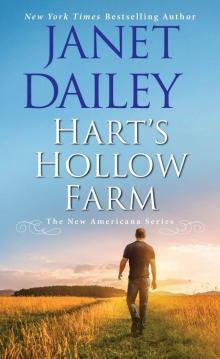 Hart's Hollow Farm
Hart's Hollow Farm Holding Out for Christmas
Holding Out for Christmas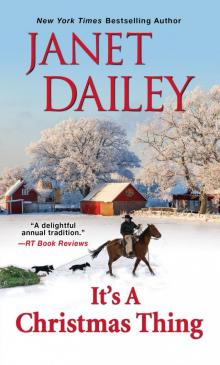 It's a Christmas Thing
It's a Christmas Thing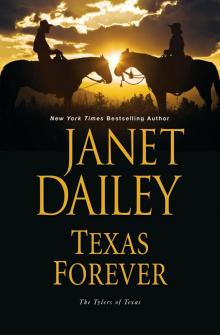 Texas Forever
Texas Forever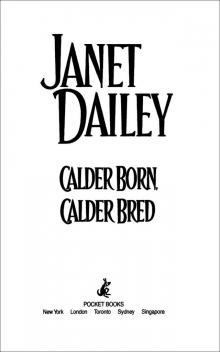 Calder Born, Calder Bred
Calder Born, Calder Bred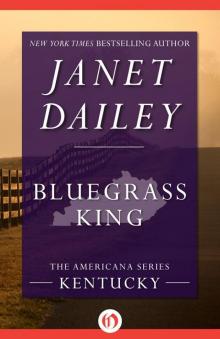 Bluegrass King (The Americana Series Book 17)
Bluegrass King (The Americana Series Book 17)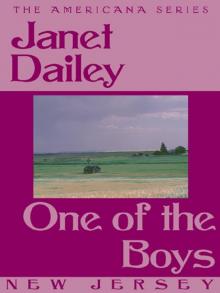 One of the Boys
One of the Boys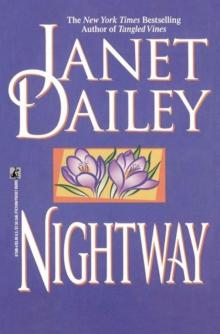 Nightway
Nightway This Calder Sky
This Calder Sky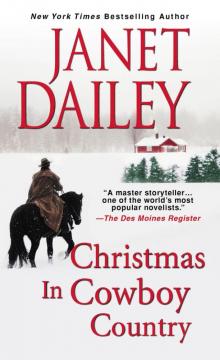 Christmas in Cowboy Country
Christmas in Cowboy Country The Widow and the Wastrel
The Widow and the Wastrel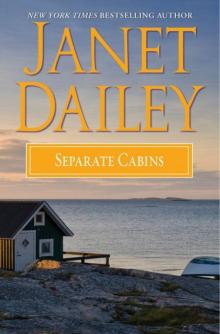 Separate Cabins
Separate Cabins Darling Jenny
Darling Jenny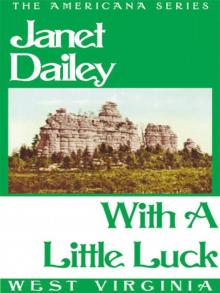 With a Little Luck
With a Little Luck The Thawing of Mara
The Thawing of Mara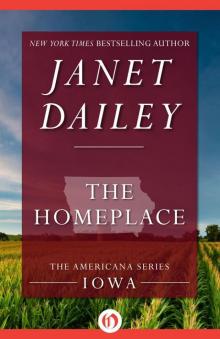 The Homeplace (The Americana Series Book 15)
The Homeplace (The Americana Series Book 15) American Dreams
American Dreams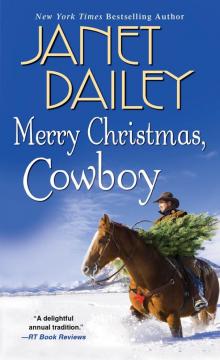 Merry Christmas, Cowboy
Merry Christmas, Cowboy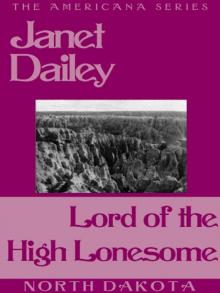 Lord of the High Lonesome
Lord of the High Lonesome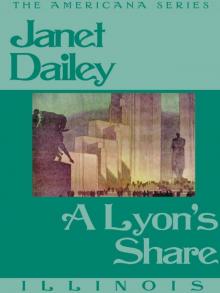 A Lyon's Share
A Lyon's Share After the Storm
After the Storm Masquerade
Masquerade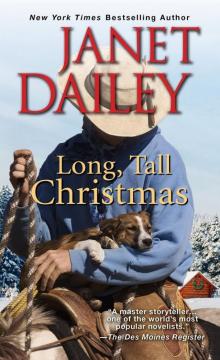 Long, Tall Christmas
Long, Tall Christmas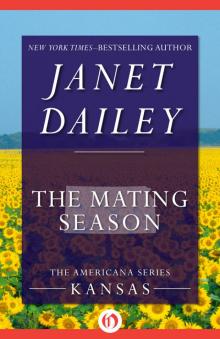 The Mating Season
The Mating Season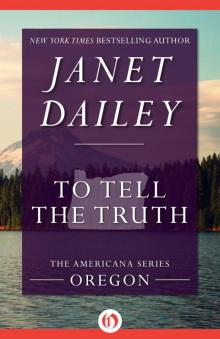 To Tell the Truth
To Tell the Truth A Land Called Deseret
A Land Called Deseret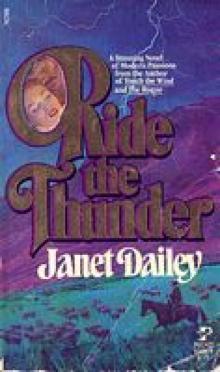 Ride the Thunder
Ride the Thunder That Boston Man
That Boston Man Wild and Wonderful
Wild and Wonderful Sonora Sundown: Arizona (The Americana Series Book 3)
Sonora Sundown: Arizona (The Americana Series Book 3)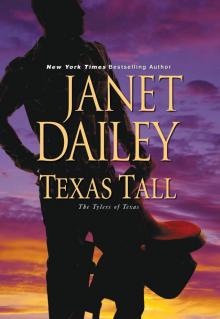 Texas Tall
Texas Tall Giant of Mesabi
Giant of Mesabi The Bride of the Delta Queen
The Bride of the Delta Queen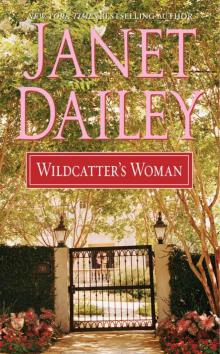 Wildcatter's Woman
Wildcatter's Woman Difficult Decision
Difficult Decision The Indy Man
The Indy Man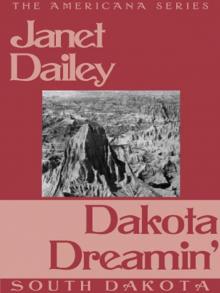 Dakota Dreamin'
Dakota Dreamin' Kona Winds
Kona Winds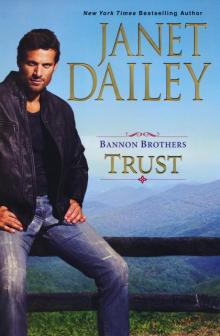 Bannon Brothers
Bannon Brothers The Lancaster Men
The Lancaster Men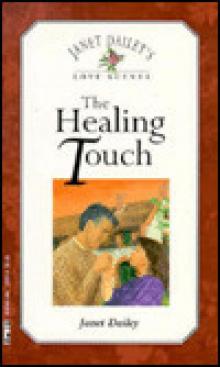 janet dailey- the healing touch
janet dailey- the healing touch Strange Bedfellow
Strange Bedfellow Leftover Love
Leftover Love Big Sky Country
Big Sky Country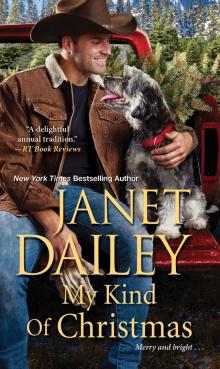 My Kind of Christmas
My Kind of Christmas You're Still The One
You're Still The One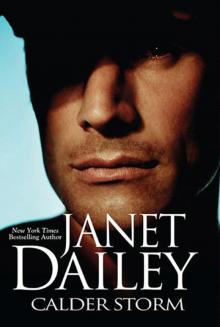 Calder Storm
Calder Storm Calder Pride
Calder Pride Low Country Liar
Low Country Liar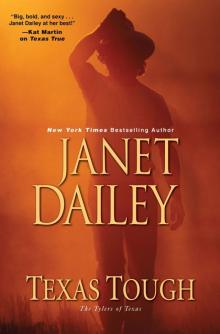 Texas Tough
Texas Tough Foxfire Light
Foxfire Light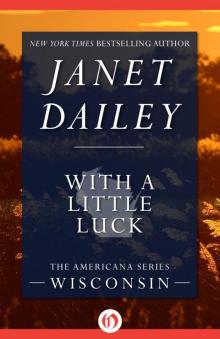 With a Little Luck (The Americana Series Book 49)
With a Little Luck (The Americana Series Book 49)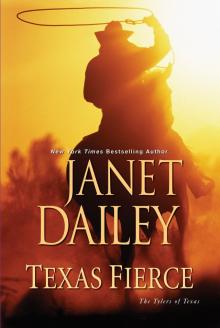 Texas Fierce
Texas Fierce Sentimental Journey
Sentimental Journey The Pride of Hannah Wade
The Pride of Hannah Wade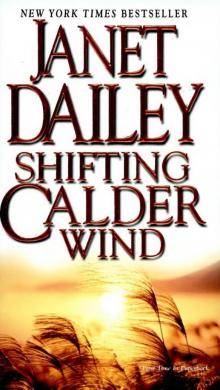 Shifting Calder Wind
Shifting Calder Wind Santa In Montana
Santa In Montana Legacies
Legacies Land of Enchantment
Land of Enchantment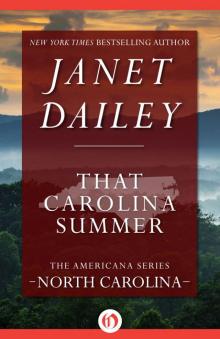 That Carolina Summer (North Carolina)
That Carolina Summer (North Carolina) Reilly's Woman
Reilly's Woman Refuge Cove
Refuge Cove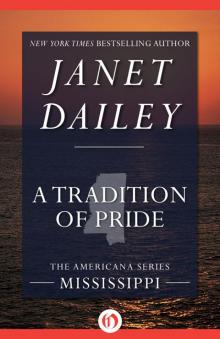 A Tradition of Pride
A Tradition of Pride Bed of Grass
Bed of Grass To Santa With Love
To Santa With Love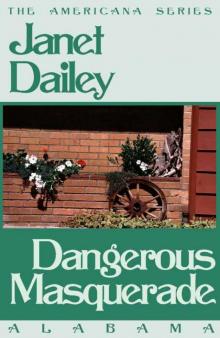 Dangerous Masquerade
Dangerous Masquerade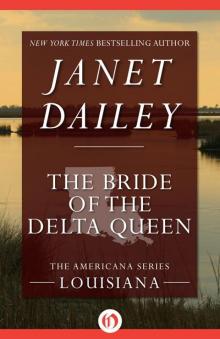 The Bride of the Delta Queen (The Americana Series Book 18)
The Bride of the Delta Queen (The Americana Series Book 18)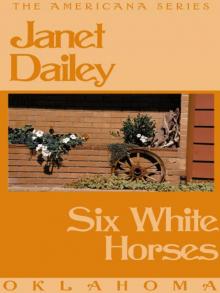 Six White Horses
Six White Horses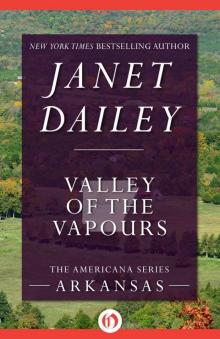 Valley of the Vapours (The Americana Series Book 4)
Valley of the Vapours (The Americana Series Book 4)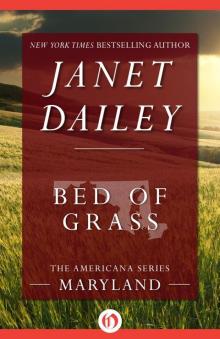 Bed of Grass (The Americana Series Book 20)
Bed of Grass (The Americana Series Book 20) The Indy Man (The Americana Series Book 14)
The Indy Man (The Americana Series Book 14)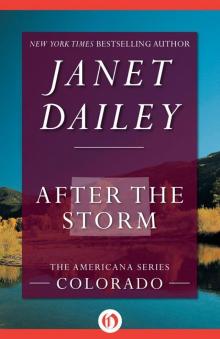 After the Storm (The Americana Series Book 6)
After the Storm (The Americana Series Book 6)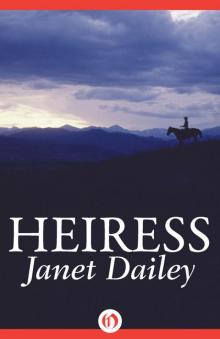 Heiress
Heiress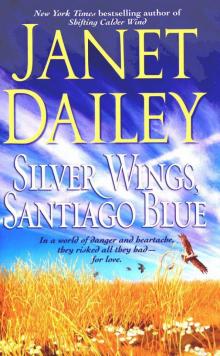 Silver Wings, Santiago Blue
Silver Wings, Santiago Blue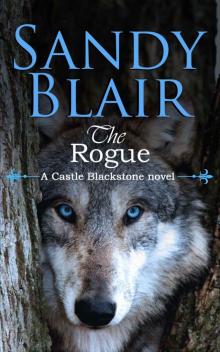 The Rogue
The Rogue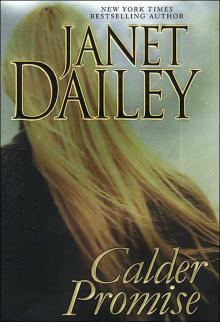 Calder Promise
Calder Promise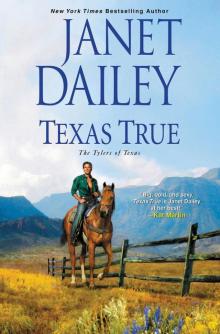 Texas True
Texas True Stands a Calder Man
Stands a Calder Man Fiesta San Antonio
Fiesta San Antonio Fire and Ice
Fire and Ice For the Love of God
For the Love of God The Ivory Cane
The Ivory Cane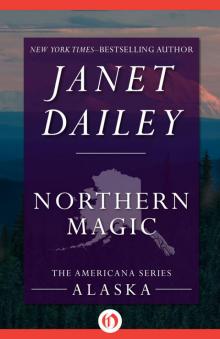 Northern Magic
Northern Magic The Glory Game
The Glory Game The Homeplace
The Homeplace The Great Alone
The Great Alone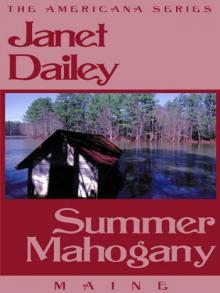 Summer Mahogany
Summer Mahogany Tangled Vines
Tangled Vines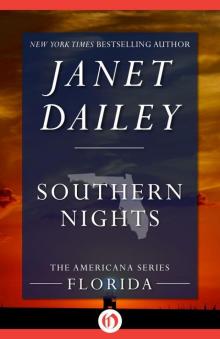 Southern Nights: Florida (The Americana Series Book 9)
Southern Nights: Florida (The Americana Series Book 9) Beware of the Stranger
Beware of the Stranger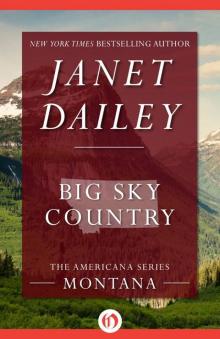 Big Sky Country: Montana (The Americana Series Book 26)
Big Sky Country: Montana (The Americana Series Book 26)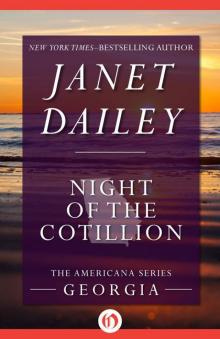 Night of the Cotillion: Georgia (The Americana Series Book 10)
Night of the Cotillion: Georgia (The Americana Series Book 10)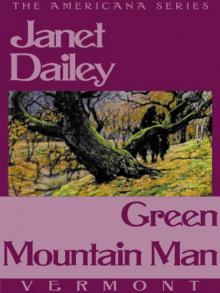 Green Mountain Man
Green Mountain Man For Mike's Sake
For Mike's Sake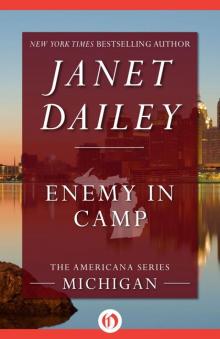 Enemy in Camp (The Americana Series Book 22)
Enemy in Camp (The Americana Series Book 22)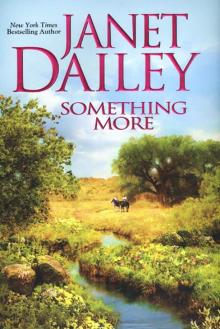 Something More
Something More Rivals
Rivals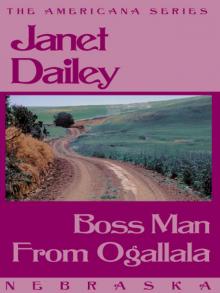 Boss Man from Ogallala
Boss Man from Ogallala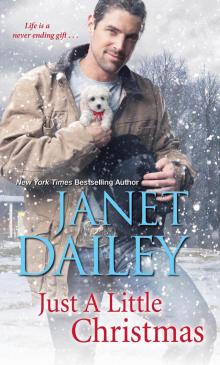 Just a Little Christmas
Just a Little Christmas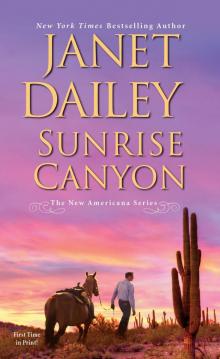 Sunrise Canyon
Sunrise Canyon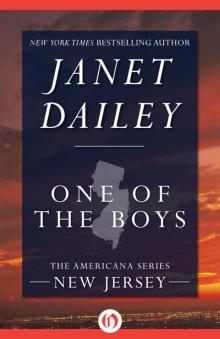 One of the Boys (New Jersey)
One of the Boys (New Jersey)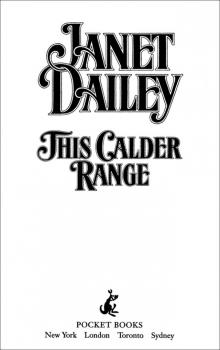 This Calder Range
This Calder Range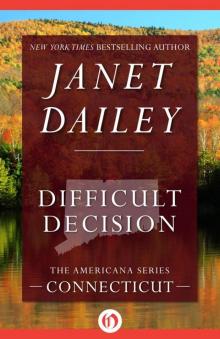 Difficult Decision: Connecticut (The Americana Series Book 7)
Difficult Decision: Connecticut (The Americana Series Book 7)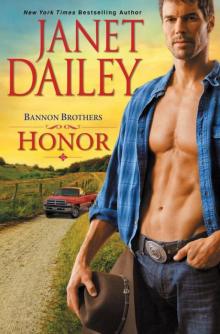 Honor
Honor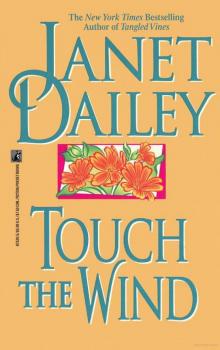 Touch the Wind
Touch the Wind Enemy in Camp
Enemy in Camp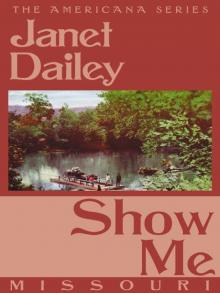 Show Me
Show Me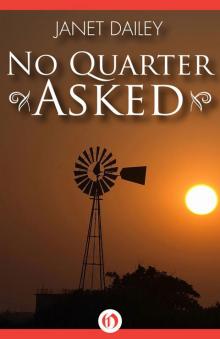 No Quarter Asked
No Quarter Asked The Second Time
The Second Time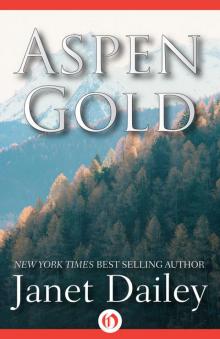 Aspen Gold
Aspen Gold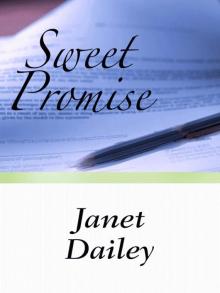 Sweet Promise
Sweet Promise Triumph
Triumph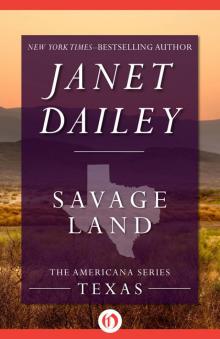 Savage Land
Savage Land Fire and Ice (The Americana Series Book 5)
Fire and Ice (The Americana Series Book 5)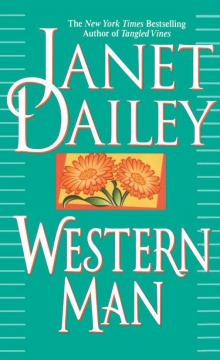 Western Man
Western Man The Traveling Kind
The Traveling Kind The Hostage Bride
The Hostage Bride Terms of Surrender
Terms of Surrender Tidewater Lover
Tidewater Lover Illusions
Illusions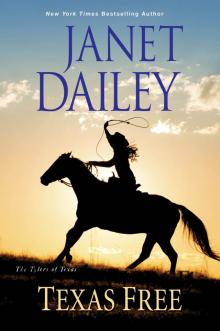 Texas Free
Texas Free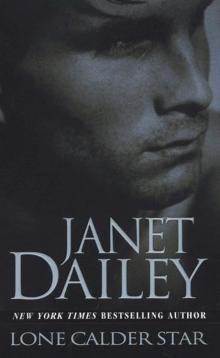 Lone Calder Star (Calder Saga Book 9)
Lone Calder Star (Calder Saga Book 9)